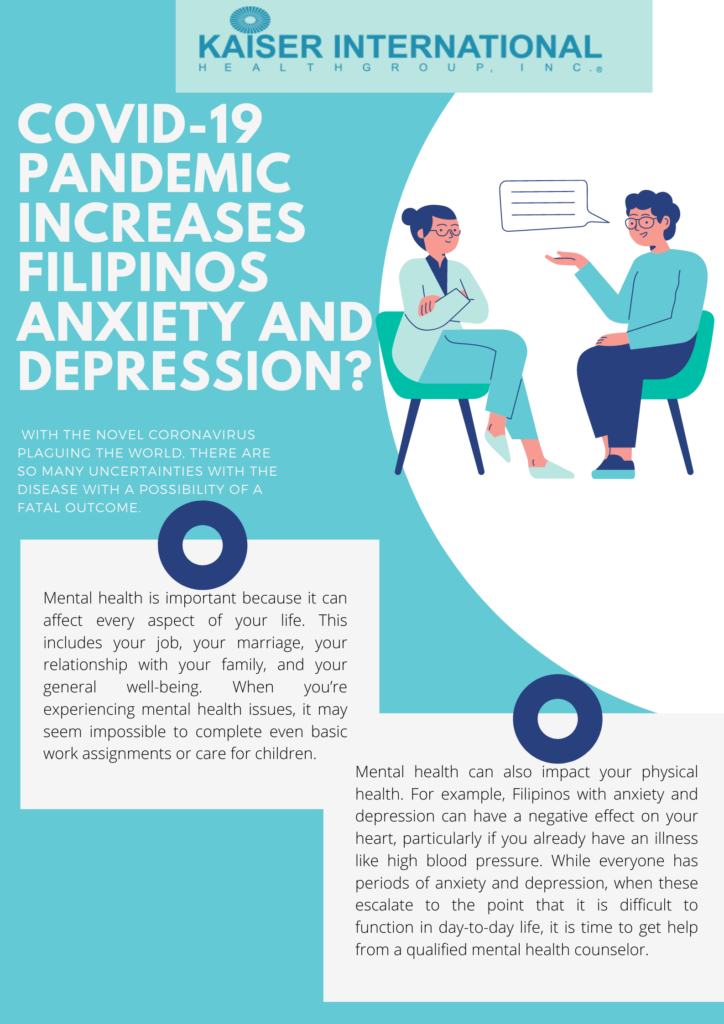On March 11, 2020 COVID-19 was declared a pandemic by the World Health Organization In the Philippines. President Rodrigo Duterte placed the entire Philippines on enhanced community quarantine on March 16, 2020. Curfew, check-points, and travel restrictions were implemented wherein business and school activities were suspended indefinitely forcing Filipinos to stay in their homes.
The COVID-19 pandemic created stress for Filipinos because of the empty store shelves, work from home set up, fear about the disease, quarantine, and many more. The mental health implications of this unprecedented situation will impact everyone differently, leading clinical psychologists to offer a guide on how to support and manages one’s mental health and that of others during these times.
Previous disease outbreaks caused generalized fear to the public and induced fear-related behaviors including anxiety and depression. With the novel coronavirus plaguing the world, there are so many uncertainties with the disease with a possibility of a fatal outcome.
Infection or death of family and friends could worsen the overall mental health well-being of an individual. Filipinos with confirmed or suspected COVID-19 may experience fear, while those in quarantine might experience boredom, loneliness, and anger. Overwhelming deep emotional traumas and socio-economic stressors brought about by the pandemic and the lockdowns have even led the more vulnerable people to commit suicide.
It is imperative to determine the prevalence of adverse mental health issues in society during this pandemic and mitigate its psychological risks and consequences. To date, there are no studies that examine the psychological impact of the COVID-19 pandemic on the general population in the Philippines.
Why is Mental health important?
Mental health is important because it can affect every aspect of your life. This includes your job, your marriage, your relationship with your family, and your general well-being. When you’re experiencing mental health issues, it may seem impossible to complete even basic work assignments or care for children.
Mental health can also impact your physical health. For example, Filipinos with anxiety and depression can have a negative effect on your heart, particularly if you already have an illness like high blood pressure. While everyone has periods of anxiety and depression, when these escalate to the point that it is difficult to function in day-to-day life, it is time to get help from a qualified mental health counselor.
3 Ways to take care of your Mental Health during COVID
Take care of yourself physically
Physical and mental health are closely intertwined. To help protect your mental health you should also safeguard your physical health.
Talk to other people
Social distancing has transformed your social life, but that doesn’t mean you can’t stay in touch with those important to you. Phone calls help, but sometimes you need to see a face. Utilize video chat applications to keep the lines of communication open.
Consult a professional
There are several qualified mental health counselors available to help you. If their offices are closed during COVID, many offer virtual appointments. Remember that not everyone responds to stress in the same manner, this is why it will help to make a list of things you’d like to talk to the counselor about having anxiety or depression.
